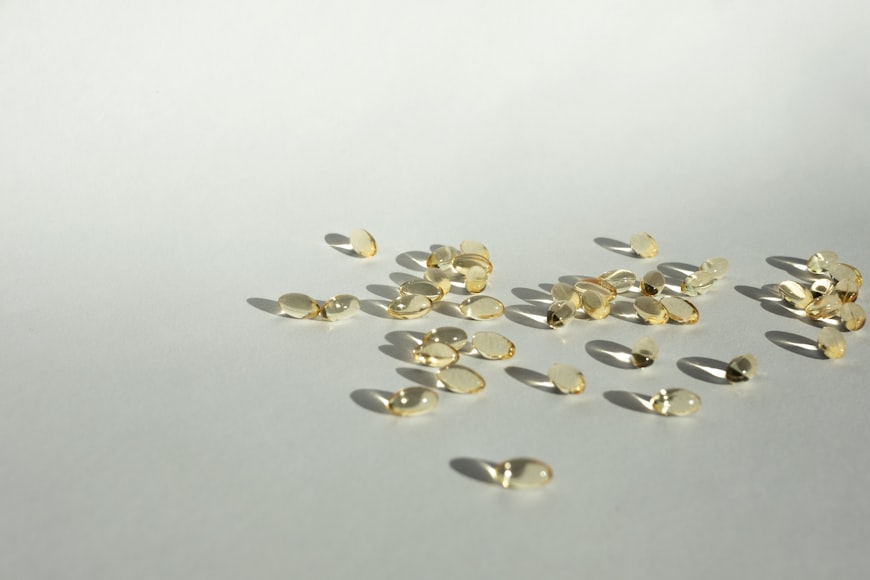Springtime Supplements: An Essential Guide

As the seasons change and warmer weather approaches, it’s time to consider supplementing your pet’s diet to support their health and well-being during the springtime. Here’s an essential guide to springtime supplements that can benefit your furry friend:
1. Omega-3 Fatty Acids
Omega-3 fatty acids are essential for maintaining a healthy heart, brain, and immune system. They help reduce inflammation and support cognitive function. Fish oil is a rich source of EPA and DHA, two important omega-3 fatty acids that can benefit both dogs and cats.
2. Antioxidants
Antioxidants help protect cells from damage caused by free radicals, which are compounds that can contribute to aging and disease. Vitamin C, vitamin E, and beta-carotene are powerful antioxidants that can help boost your pet’s overall health and longevity.
3. Probiotics
Probiotics are live microorganisms that, when ingested, can help improve the gut microbiome and support digestive health. They can help reduce digestive upset, improve nutrient absorption, and boost the immune system.
4. Turmeric
Turmeric is a natural anti-inflammatory that can help reduce joint pain and stiffness. It contains curcumin, a powerful antioxidant that has been shown to have numerous health benefits.
5. Glucosamine and Chondroitin
Glucosamine and chondroitin are supplements that help support joint health. They are natural compounds that can help reduce inflammation, improve cartilage function, and promote joint mobility.
6. L-Carnitine
L-carnitine is an amino acid that helps support energy production and metabolism. It can help improve endurance, reduce muscle fatigue, and support weight loss.
7. Multivitamins
Multivitamins can help ensure that your pet is getting all the essential vitamins and minerals they need for optimal health. They can be especially beneficial for pets with dietary restrictions or those who do not eat a balanced diet.
When to Supplement
Consult with your veterinarian before giving your pet any supplements. They can provide personalized recommendations based on your pet’s age, breed, and health status. It’s important to follow the dosage instructions carefully and not over-supplement.
Additional Tips
- Choose high-quality supplements from reputable manufacturers.
- Store supplements in a cool, dry place out of reach of pets.
- Monitor your pet for any adverse reactions or improvements in health.
By incorporating springtime supplements into your pet’s diet, you can help support their overall health, boost their immunity, and improve their quality of life. Remember to consult with your veterinarian before giving any supplements to ensure their safety and effectiveness for your furry companion.
Vitamin D:

As spring approaches, it’s time to shed our winter layers and soak up the sunshine. But did you know that sunlight isn’t the only source of vitamin D? This essential nutrient plays a vital role in your pet’s overall health and well-being, and it’s important to ensure adequate intake, especially during the spring season.
Benefits of Vitamin D:
- Strong bones: Vitamin D helps your pet absorb calcium, which is essential for strong bones and teeth.
- Immune system support: Vitamin D boosts the immune system, helping your pet fight off infections.
- Reduced inflammation: Vitamin D has anti-inflammatory properties that can help alleviate joint pain and inflammation.
- Cognitive function: Vitamin D supports brain function and may improve memory and learning abilities.
Sources of Vitamin D:
While sunlight is a natural source of vitamin D, pets can also obtain it from various foods and supplements. Rich sources of vitamin D for pets include:
- Fatty fish: Salmon, tuna, and mackerel are excellent sources of vitamin D.
- Liver: Liver is another good source of vitamin D.
- Dairy products: Milk, cheese, and yogurt fortified with vitamin D can contribute to your pet’s intake.
- Supplements: Vitamin D supplements are available in various forms, such as tablets, capsules, and liquid drops.
Supplementation:
If your pet does not get enough sunlight or has a diet that is low in vitamin D, supplementation may be necessary. Before giving your pet any vitamin D supplements, consult with your veterinarian to determine the appropriate dosage and form for your pet’s individual needs.
Signs of Vitamin D Deficiency:
Vitamin D deficiency is relatively rare in pets, but it can occur if your pet does not get enough sunlight or has a diet that is very low in vitamin D. Signs of vitamin D deficiency in pets include:
- Bone weakness: Brittle bones, fractures, or delayed bone growth.
- Muscle weakness: Weakness, fatigue, or decreased activity levels.
- Skin problems: Dry, itchy, or flaky skin.
- Delayed wound healing: Wounds that take a long time to heal.
Conclusion:
Vitamin D is an essential nutrient for your pet’s health. By ensuring adequate intake through a combination of sunlight, dietary sources, and supplementation if necessary, you can support your pet’s strong bones, immune system, and overall well-being this spring. Remember to consult with your veterinarian for personalized advice on vitamin D supplementation for your furry friend.
Magnesium:

As the days grow longer and the flowers bloom, it’s time to give your furry friend a boost of essential nutrients with springtime supplements. Among these crucial additions, magnesium stands out as a vital mineral for promoting optimal well-being.
Energy Production
Magnesium plays a key role in energy metabolism. It acts as a cofactor for enzymes involved in cellular respiration, the process that converts glucose into ATP, the body’s primary energy currency. Ensuring adequate magnesium levels helps maintain energy production and prevents fatigue.
Stress Reduction
Magnesium is a natural stress reliever and relaxant. It calms the nervous system by reducing nerve firing and enhancing the production of serotonin, a neurotransmitter associated with well-being. For pets experiencing anxiety or stress, magnesium supplements can provide a soothing effect.
Sleep Quality
Magnesium promotes relaxation and facilitates sleep by reducing muscle tone and calming the mind. By promoting a restful night’s sleep, magnesium helps your pet wake up refreshed and energized.
Other Benefits
In addition to its energy-boosting, stress-reducing, and sleep-enhancing properties, magnesium offers several other benefits for pets, including:
- Improved muscle function
- Reduced inflammation
- Enhanced immune function
- Blood sugar regulation
- Bone health
Signs of Magnesium Deficiency
While magnesium deficiency is rare, it can occur due to inadequate dietary intake or certain health conditions. Symptoms of magnesium deficiency may include:
- Fatigue
- Muscle weakness
- Nervousness
- Loss of appetite
- Seizures (in severe cases)
Dietary Sources of Magnesium
Leafy greens, such as spinach and collard greens, are excellent sources of magnesium. Other foods rich in magnesium include:
- Almonds
- Cashews
- Beans
- Lentils
- Pumpkin seeds
Supplementation
If your pet’s diet lacks sufficient magnesium or they exhibit signs of deficiency, supplementation may be necessary. Various forms of magnesium supplements are available, including tablets, capsules, and powders. It’s important to consult with your veterinarian before administering supplements to determine the appropriate dosage and form.
Conclusion
Magnesium is an essential springtime supplement that supports your pet’s energy production, reduces stress, and improves sleep quality. By ensuring adequate magnesium intake through diet or supplementation, you can enhance your beloved companion’s overall well-being and keep them thriving as the days get warmer.
Zinc:

As we transition into spring, it’s essential to ensure our furry companions are receiving the nutrients they need to thrive. Among these crucial nutrients is zinc, a mineral that plays a multifaceted role in various aspects of pet health.
Immune Function
Zinc is a cornerstone of the immune system. It supports the production of white blood cells, which are responsible for fighting infections and maintaining overall health. During the spring, when pets may be more exposed to allergens and bacteria, zinc supplementation can help boost their immune defenses and keep them protected.
Hormone Balance
Zinc is necessary for the proper function of the thyroid gland, which regulates hormone balance. Thyroid hormones influence various bodily processes, including metabolism, growth, and development. Sufficient zinc levels ensure that the thyroid gland produces the appropriate amount of hormones for optimal pet health.
Skin Health
Zinc plays a crucial role in maintaining healthy skin and coat. It supports the production of collagen, a protein that provides strength and structure to the skin. Additionally, zinc helps reduce inflammation and promotes wound healing, benefiting pets with skin conditions or allergies.
Recommended Dosage
The recommended daily dosage of zinc for pets varies depending on factors such as age, size, and activity level. It’s always best to consult with a veterinarian to determine the appropriate amount for your pet.
Foods Rich in Zinc
While supplements can provide concentrated amounts of zinc, it’s important to ensure your pet receives zinc from their diet as well. Some natural sources of zinc include:
- Red meat
- Seafood (e.g., oysters, shrimp)
- Eggs
- Legumes (e.g., beans, lentils)
- Certain fruits and vegetables (e.g., pumpkin, avocado)
Conclusion
Zinc is an essential nutrient that provides numerous benefits for pets’ health. By incorporating zinc into your pet’s springtime supplementation routine, you can support their immune system, promote hormone balance, and ensure the health of their skin and coat. Remember to consult with a veterinarian before administering zinc supplements to your pet, as excessive levels can be harmful.
Iron:

As we emerge from winter’s slumber and embrace the vibrant colors and fresh scents of spring, it’s time to consider our furry friends’ nutritional needs. Iron is a vital mineral that plays a crucial role in maintaining our pets’ health and well-being, especially during this transitional season.
Iron and Anemia
Iron is a key component of hemoglobin, a protein in red blood cells that carries oxygen throughout the body. Without sufficient iron, our pets may develop anemia, a condition characterized by a decrease in the number or size of red blood cells. Anemia can lead to fatigue, weakness, pale gums, and difficulty breathing.
Iron Needs for Pets
The iron requirements of pets vary depending on their age, breed, size, and health status. Growing puppies and kittens, pregnant or lactating females, and pets with certain health conditions may require increased iron intake.
Dietary Sources of Iron
Iron is naturally found in many foods, including:
- Red meat (beef, lamb)
- Organ meats (liver, kidney)
- Fish (tuna, salmon)
- Eggs
- Oatmeal
- Leafy green vegetables (spinach, kale)
Iron Supplements
If your pet’s diet does not provide adequate iron, supplementation may be necessary. Iron supplements are available in various forms, including:
- Oral tablets or liquids
- Injections
It is essential to consult with your veterinarian before giving your pet any iron supplements, as excessive iron intake can be toxic.
Benefits of Adequate Iron
Ensuring adequate iron levels in your pet has numerous health benefits, including:
- Prevention and treatment of anemia
- Enhanced oxygen delivery to tissues and muscles
- Improved energy levels
- Reduced fatigue and weakness
- Support for healthy immune function
Springtime Considerations
Springtime is an ideal time to assess your pet’s iron status, especially for female pets who may be preparing for pregnancy or lactation. Increased physical activity and outdoor exploration can also increase their iron needs.
Regular veterinary check-ups and blood tests can help monitor your pet’s iron levels and ensure they are receiving the necessary nutrients to stay happy and healthy throughout the spring and beyond.
B-Vitamins:
As the days get longer and nature awakens from its winter slumber, it’s time to give our furry companions a boost with springtime supplements. Among the essential nutrients for pets, B-vitamins play a crucial role in overall well-being.
B-Vitamins: Nature’s Energy Booster
B-vitamins are a group of water-soluble vitamins that work together to:
- Support energy metabolism
- Enhance brain function and cognitive abilities
- Regulate mood and reduce stress
Benefits of B-Vitamins for Pets
Including B-vitamins in your pet’s diet can provide numerous benefits, including:
- Improved Energy Levels: B-vitamins help convert food into energy, ensuring your pet has the stamina they need for playtime, walks, and other activities.
- Sharpened Cognitive Function: B-vitamins are essential for brain development and function. They support memory, learning, and decision-making abilities in pets.
- Boosted Mood: B-vitamins play a role in regulating mood and reducing anxiety in both humans and animals. They can help uplift your pet’s spirits and make them more relaxed.
- Healthy Skin and Coat: B-vitamins are involved in cell growth and regeneration, contributing to a healthy and lustrous skin and coat.
- Strengthened Immune System: Some B-vitamins, such as B12, support the immune system, helping your pet fight off infections.
Natural Sources of B-Vitamins
Pets can obtain B-vitamins from a balanced diet that includes:
- Meat and poultry
- Fish
- Eggs
- Dairy products
- Whole grains
- Fruits and vegetables
Supplementation for Optimal Health
While most pets can get the B-vitamins they need from their food, supplementation may be necessary in certain situations, such as:
- During periods of stress or illness
- For pets with digestive disorders that affect nutrient absorption
- For senior pets who may not be able to absorb nutrients as efficiently
Choosing a B-Vitamin Supplement
When selecting a B-vitamin supplement for your pet, choose a reputable brand that provides a comprehensive blend of all eight B-vitamins. Look for supplements that are specifically formulated for pets and follow the recommended dosage instructions.
Conclusion
Incorporating B-vitamins into your pet’s springtime regimen can have a profound impact on their energy levels, cognitive function, and overall well-being. By ensuring your furry friend has access to these essential nutrients, you can help them bloom into a vibrant and healthy companion. Consult with your veterinarian before starting any supplement regimen to determine the best dosage and additional health recommendations for your pet.
Probiotics:
As the days grow longer and the weather warms, it’s time to give your pet a springtime boost with essential supplements. One crucial supplement to consider is probiotics, beneficial bacteria that offer numerous health benefits for your furry friend.
What are Probiotics?
Probiotics are live microorganisms that, when consumed in adequate amounts, provide health benefits to the host. They reside in the digestive tract and maintain a delicate balance of bacteria, known as the gut microbiome.
Benefits of Probiotics for Pets
Probiotics play a vital role in various aspects of your pet’s health, including:
- Gut Health: Probiotics promote a healthy digestive system by inhibiting harmful bacteria and supporting nutrient absorption.
- Immune System: Bacteria in probiotics stimulate the immune system, protecting pets from infections and illnesses.
- Skin and Coat Health: Probiotics can improve skin conditions like allergies and eczema, and promote a healthy, shiny coat.
- Dental Health: Probiotics help reduce bad breath and periodontal disease by suppressing harmful oral bacteria.
- Behavioral Health: Some probiotics have been linked to positive effects on mood and anxiety in pets.
When to Give Probiotics to Your Pet
Probiotics are generally safe to give to pets throughout their lives. However, certain situations may necessitate increased probiotic intake, such as:
- Antibiotic treatment: Antibiotics can disrupt the gut microbiome, making probiotics essential for restoring balance.
- Stress: Stressful events, such as traveling or vet visits, can disrupt digestion and benefit from probiotics.
- Digestive issues: Probiotics can help alleviate symptoms of diarrhea, vomiting, and constipation.
- Skin problems: Pets with skin allergies or infections may benefit from probiotics to improve skin health.
How to Choose the Right Probiotic Supplement
Not all probiotics are created equal. When choosing a supplement, look for products:
- Species-appropriate: Probiotics should be specifically formulated for cats, dogs, or other pets.
- High CFUs: CFUs (colony-forming units) indicate the number of live bacteria in a supplement. Choose products with a high CFU count.
- Multiple strains: Different strains of bacteria offer different benefits. Supplements containing multiple strains provide a broader range of benefits.
- Stability: Probiotics must survive the harsh environment of the digestive tract. Choose products guaranteed to deliver live bacteria to your pet’s gut.
Conclusion
Incorporating probiotics into your pet’s springtime routine is a wise investment in their overall well-being. By supporting a healthy gut microbiome, probiotics boost immunity, improve digestion, and promote overall health and happiness. Consult with your veterinarian to determine the best probiotic supplement for your furry companion and enjoy the spring season with a thriving, healthy pet by your side.
Green Tea Extract:
As the spring season blossoms, it’s crucial to ensure our furry companions are well-nourished and supported with essential supplements. One exceptional supplement that deserves your attention is Green Tea Extract.
Green Tea Extract: A Powerhouse of Antioxidants
Green tea extract is derived from the leaves of the Camellia sinensis plant. It boasts an exceptionally rich concentration of polyphenols, a group of powerful antioxidants that fight against harmful free radicals. Free radicals can contribute to a range of health issues, including inflammation and oxidative stress.
Antioxidant Properties
Green tea extract’s antioxidants work effectively to neutralize free radicals throughout the body. By scavenging these harmful molecules, it helps protect cells from damage and reduces inflammation. This antioxidant activity is particularly beneficial for pets with conditions such as allergies, skin irritation, and digestive issues.
Anti-inflammatory Properties
Inflammation is a natural response to injury or infection, but chronic inflammation can lead to a variety of health problems. Green tea extract contains compounds like epigallocatechin gallate (EGCG) that have potent anti-inflammatory effects. These compounds can help alleviate pain and discomfort associated with joint problems, allergies, and gastrointestinal disorders.
Additional Benefits
Beyond its antioxidant and anti-inflammatory properties, green tea extract offers several other potential health benefits for pets, including:
- Improved heart health: Antioxidants in green tea may help reduce the risk of heart disease by improving blood flow and reducing cholesterol levels.
- Cancer prevention: Some studies suggest that green tea extract may have anticancer properties, though more research is needed in this area.
- Weight management: Green tea extract may promote weight loss by boosting metabolism and increasing satiety.
Dosage and Administration
The appropriate dosage of green tea extract for pets varies depending on their size and weight. It’s always advisable to consult with your veterinarian before administering any supplements. Green tea extract can be given orally in capsule form or added to food or water.
Caution
While green tea extract is generally safe for pets, it’s important to note that it can interact with certain medications. Pets with liver disease should avoid green tea extract. If you have any concerns, always consult with your veterinarian.
Conclusion
Green Tea Extract is a remarkable supplement that can help support the health and well-being of your pet this spring. Its potent antioxidant and anti-inflammatory properties can combat a wide range of health concerns, promoting overall vitality and well-being. By incorporating Green Tea Extract into your pet’s daily routine, you can provide them with essential nutrients that support their overall health and happiness.
Turmeric:
As spring blooms and nature awakens, it’s an ideal time to reassess our pets’ health. With the changing seasons, there’s an abundance of natural supplements to enhance their well-being. Among these, turmeric stands out as a potent springtime ally.
Turmeric: Nature’s Anti-inflammatory Powerhouse
Derived from the root of the Curcuma longa plant, turmeric is renowned for its vibrant golden hue and a host of medicinal properties. Its chief active ingredient, curcumin, is a potent antioxidant and anti-inflammatory compound.
Benefits for Pets
Turmeric offers a wide range of benefits for pets, particularly those struggling with inflammatory conditions. Here are some key advantages:
- Inflammation Relief: Curcumin’s anti-inflammatory effects can alleviate pain and discomfort associated with arthritis, allergies, and other inflammatory conditions.
- Antioxidant Protection: Turmeric’s antioxidant properties combat free radicals, which can damage cells and contribute to aging and disease.
- Improved Digestion: Turmeric can aid digestion, reduce gas, and ease gastrointestinal discomfort.
- Skin and Coat Health: Curcumin’s antimicrobial and anti-inflammatory properties may benefit skin conditions, such as hot spots and allergies.
Dosage and Administration
The recommended dosage of turmeric for pets depends on their size and health needs. A good rule of thumb is to give 1/4 to 1/2 teaspoon per 10 pounds of body weight daily. You can mix turmeric powder into their food or give it as a supplement capsule.
Safety Considerations
Turmeric is generally considered safe for pets, but it’s essential to consult with your veterinarian before giving it to pregnant or nursing animals or those with liver or kidney issues. Turmeric may interact with certain medications, so it’s crucial to inform your vet if your pet is taking any prescribed drugs.
Conclusion
As the springtime brings about a season of renewal, turmeric emerges as a valuable supplement to enhance the health and well-being of our beloved pets. Its potent anti-inflammatory and antioxidant properties can support their mobility, digestion, skin health, and overall vitality. By incorporating turmeric into their springtime routine, we can unlock its natural healing powers and help our furry friends thrive throughout the season and beyond.



















